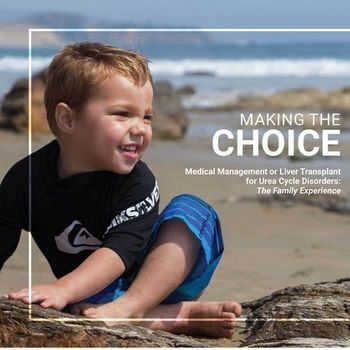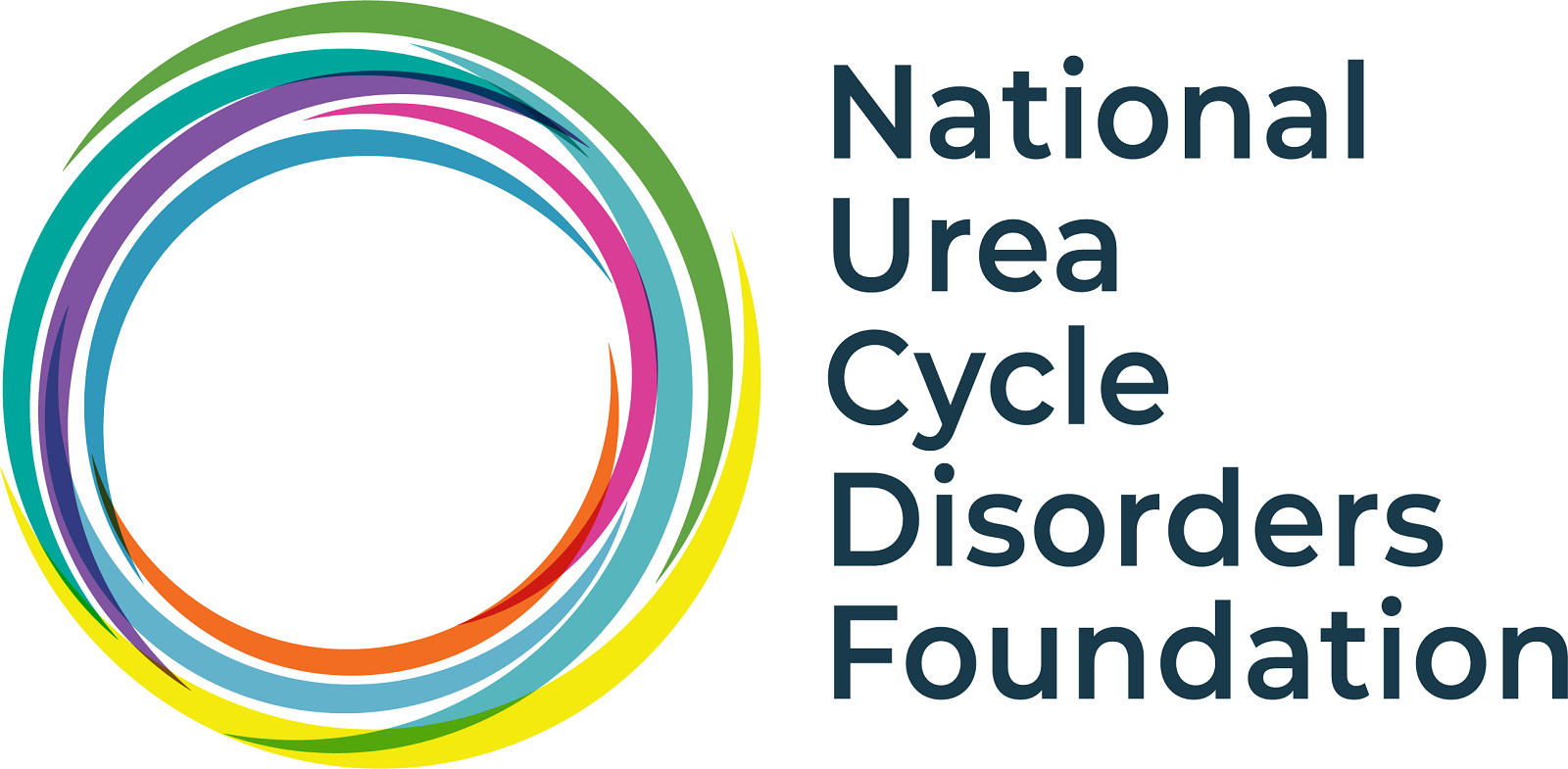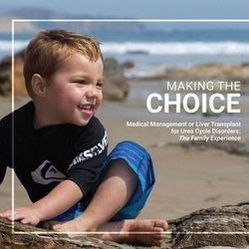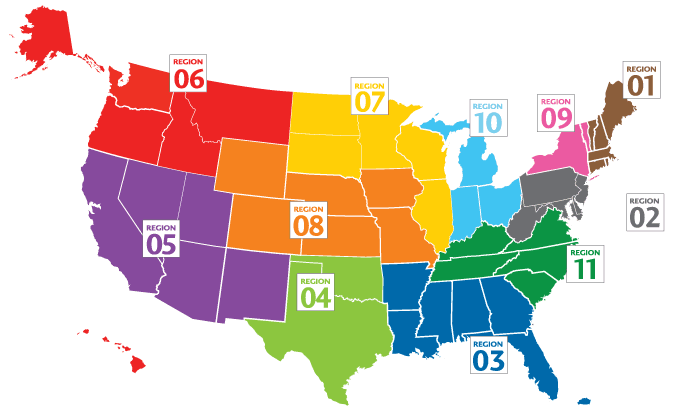
Making the Decision
Patients and families affected by urea cycle disorders (UCD) face profound concerns about the short and long-term effects of UCD on brain function and quality of life. While some families choose to continue with medical management, other families pursue liver transplant in hopes of preserving brain function and improving quality of life. Either choice is a leap of faith. Patients, families, and their medical providers often struggle with uncertainties and a lack of information to help them navigate the complex issues involved in making choices about continuing with standard medical treatment or opting for liver transplantation.
To begin to address this problem, a pivotal study was proposed by the National Urea Cycle Disorders Foundation (NUCDF) on behalf of UCD patients and families to examine and describe the factors that influence families' decisions to continue medical management or choose liver transplant. The study was supported by the Patient-Centered Outcome Research Institute (PCORI®) and conducted by a collaborative team of experts. We deeply appreciate their commitment to this research—the first patient-centered outcome study on this topic. The purpose of this first-edition Guide is to help begin to disseminate the results of the study to UCD patients, families and healthcare providers.
The Guide is a labor of love dedicated to patients and families affected by urea cycle disorders. It was made possible through the generosity of families in the study sharing their very personal experiences with the study team in the hope of helping other UCD families on this journey.
This page provides crucial information for individuals diagnosed with Urea Cycle Disorder (UCD) and their families, focusing on the role of liver transplantation as a treatment option. For some patients, especially those with severe forms of the disorder, a liver transplant may offer a potentially life-saving solution. Whether you're newly diagnosed or exploring treatment options, this page aims to guide you through the complexities of UCD and the transformative potential of liver transplantation.

Making the Choice Between Medical Management and Liver Transplant
Nicholas Ah Mew, M.D., is the director of the Inherited Metabolic Program at Children’s National Hospital. He was also the principal investigator on the recent PCORI-funded study, “Comparing Treatment Options for Urea Cycle Disorders,” which was undertaken to promote better delivery of care and information to UCD patients and their families. He shared key findings from the study at the 2024 NUCDF Family Conference. Dr. Ah Mew's talk focused on the family experience in making the choice between medical management and liver transplantation. He outlined the factors that families consider in making that decision, which fall into four major categories:
- Clinical: Disease severity v. stability
- Personal: Burden on the family and the child
- Social: Sharing experiences and considerations for the child's independence
- System: Access to quality metabolic care; cost and coverage of treatment; physician approach to guidance and treatment.

Video Series
This video series aims to educate patients, families, and healthcare professionals about treatment options for urea cycle disorders (UCDs), including treatment with diet and medicines as compared to liver transplantation.
This video describes urea cycle disorders, talks about the effects of high ammonia levels, and discusses the treatment options of diet or medicines and liver transplant.
This second video looks at factors people consider when deciding whether to pursue a liver transplant.
This video discusses research undertaken to compare outcomes in a large group of patients with severe UCDs, some of whom were treated their whole life with diet and medicine and some who had liver transplants.

Liver Transplantation for Urea Cycle Disorders
George Mazariegos, MD, of the University of Pittsburgh Medical Center offers a long-term perspective on liver transplant decision-making in urea cycle disorders. Dr. Mazariegos is the Chief of Pediatric Transplantation at Children’s Hospital of Pittsburgh. He and his team have performed numerous liver transplants in patients with UCDs. He shared that worldwide, transplantation for UCDs has increased. Long-term (greater than 10 years) outcomes have greater than 90% patient and transplant graft survival. Optimal timing for neuro and motor development is being studied but earlier transplantation is favored. Long-term morbidities in both transplant and medical management need to be openly discussed, he says. Variability in surgical outcomes exist and should be reviewed with families and managing physicians. Dr. Mazariegos and his colleagues recently founded the Starzl Network as a learning health network to spread best practices for children receiving transplantation.

Liver Transplant Panel Discussion
At the 2024 NUCDF Family Conference, Drs. Mazariegos, Ah Mew, and Dudley took part in a panel discussion following their presentations. They were joined by the Dinon family: Michelle, Jack, and Sophia. Sophia, an ASA patient, underwent a liver transplant when she was 5 years old in 2013. George Mazariegos, M.D., is with the University of Pittsburgh Medical Center Nicholas Ah Mew, M.D., is with Children's National Hospital Aimee Dudley, Ph.D., is with Pacific Northwest Research Institute.






